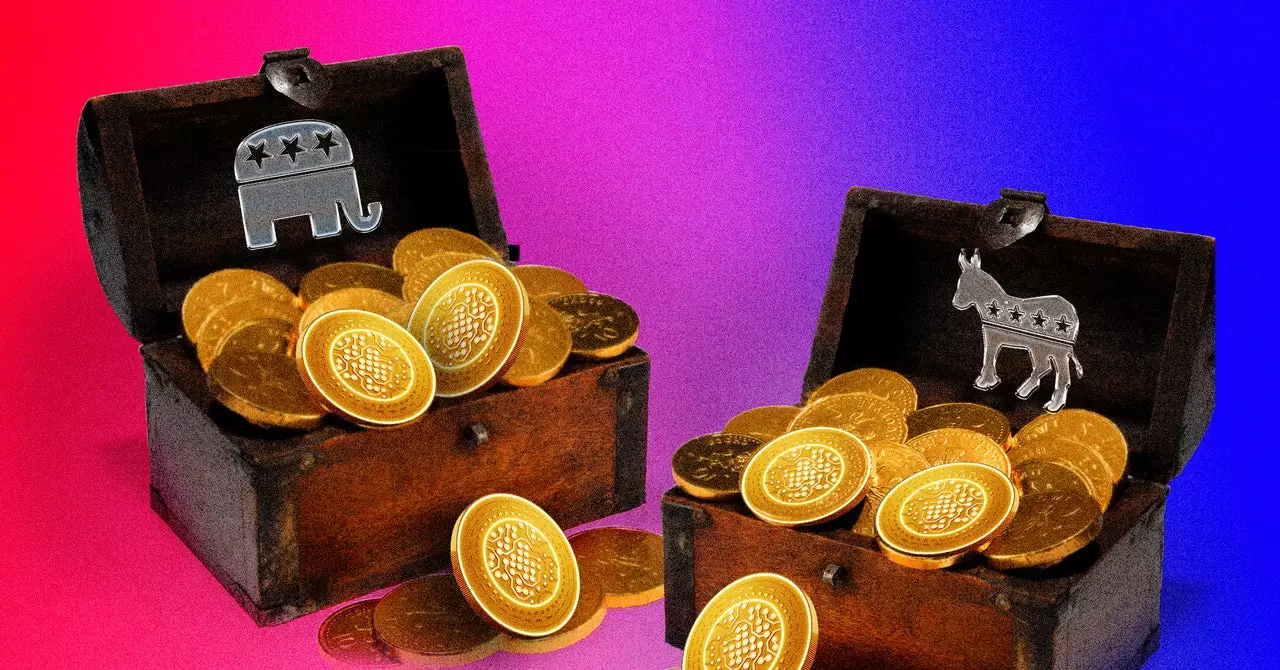As the Democratic National Convention unfolded in Chicago, a new and unexpected figure emerged on the scene – Jonathan Padilla, better known as the “crypto guy.” With his pineapple-print shirt and a cap, Padilla made his way through the convention, engaging in discussions about crypto policies with anyone willing to listen. His selfie with Senator Chris Coons of Delaware became a highlight as he proudly proclaimed that Senator Coons is now aware of crypto.
Padilla’s presence at the DNC symbolizes a shift in the political landscape, where cryptocurrency is no longer a niche topic but a significant part of the conversation. Four years ago, crypto was barely mentioned, but today, it has garnered attention from both President Trump and high-ranking Democrats. The formation of Crypto4Harris, a group advocating for crypto-friendly legislation, further solidifies the industry’s growing influence in political circles.
Crypto businesses have recognized the importance of political engagement, especially in a volatile regulatory environment. With the upcoming election, these firms have ramped up their efforts to support candidates who align with their interests. The establishment of super PACs like Fairshake, Protect Progress, and Defend American Jobs has allowed crypto companies to channel their donations indirectly to candidates who support their cause.
One of the primary motivations behind the crypto industry’s involvement in politics is the need for regulatory clarity. Under the Biden administration, crypto companies have faced increased scrutiny from financial regulators, leading to legal battles and uncertainties. By supporting candidates who advocate for tailored crypto legislation, these firms hope to resolve the ongoing debates surrounding the classification of crypto assets and regulatory oversight.
Despite the growing influence of the crypto industry in US politics, it has not been without its challenges. Major players like Coinbase have faced backlash for their significant contributions to super PACs like Fairshake. The allegations of violating campaign finance laws have put a spotlight on the intersection of big tech and political donations, raising questions about the industry’s ethical practices.
As the 2024 election approaches, the crypto industry’s impact on US politics is poised to grow even further. With increasing investments in lobbying efforts and political contributions, crypto firms are positioning themselves as key players in shaping the regulatory landscape. Whether this newfound influence will lead to meaningful change or face continued scrutiny remains to be seen. However, one thing is certain – the crypto industry is no longer on the sidelines but actively participating in the political arena.

